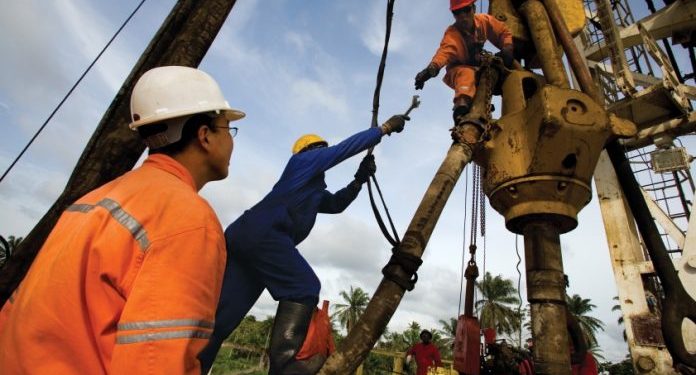The World Bank has announced that Nigeria led the list of the oil-producing countries that recorded a shortfall in production due to the sabotage prevalent within the country’s oil production system, and other factors, such as low investments and the political crisis in the Niger Delta area.
According to the World Bank, Nigeria recorded a shortfall of about 500,000 barrels per day while Angola and Russia both recorded a shortfall of about 300,000 barrels per day.
This was disclosed in a World Bank’s report on “The Commodity Markets Outlook”.
The financial institution said that although global oil production rose just a little under one percent in the first quarter of 2022 based on a quarter-by-quarter analysis, it was estimated to be about three percent below the pre-pandemic production levels.
The report read, “The increase was entirely accounted for by OPEC+, where production rose by about 1mb/d as the group continued to unwind its earlier cuts. Output among non-OPEC+ countries fell slightly by 0.2 mb/d in the first quarter, with a decline of 0.3 mb/d in the United States, partially offset by a modest rise in Brazil.”
Despite the moderate increase in the production levels amidst the Russian –Ukraine war and other hindering factors, the bank lamented over the oil-producing countries’ inability to meet up with the official target.
The back exact words reported in the statement were “Although OPEC+ production increased modestly, the group continues to produce well below its official target.” It stated the output returns in March as it mentioned, “In March, 12 of the 19 countries subject to production cuts were below their quotas.
The bank went back to its record since the start of the year 2022 and found that the shortfall gap had widened to about 1.4mb/d from about 1mb/d at the start of the year as Russia’s production declined.
Presently, the top three countries that recorded shortfalls are; Nigeria (0.5 mb/d), and, Angola and Russia (each 0.3 mb/d). According to the World Bank, these countries’ production was affected by a variety of temporary factors including maintenance, protests, sabotage, bad weather, and low investment, among others.
However, the bank noted that the group is expected to fully work up to its agreed production cuts by September 2022, in line with previous announcements.
Earlier this month, OPEC increased the oil production quota for Nigeria as the Federal Government called for an inclusive energy transition that would be beneficial to not just Nigeria but to other countries in Africa.
According to OPEC figures, Nigeria’s crude oil production crashed by 744,000 barrels in March 2022. While the Monthly Oil Market Report for April 2022, showed that Nigeria recorded an output decline in March.
An analysis of the document by our correspondent showed that Nigeria’s oil production dropped from the 1.378 million barrels per day recorded in February 2022 to 1.354 million barrels per day in March, indicating a daily plunge of 24,000 barrels of crude oil.









